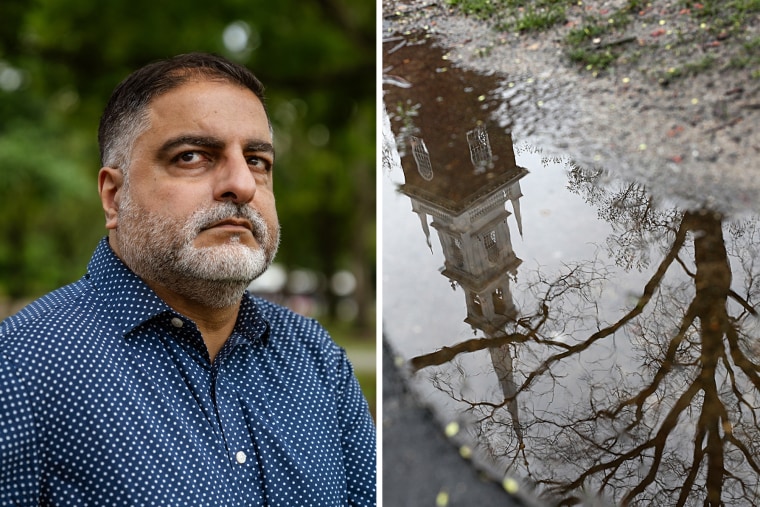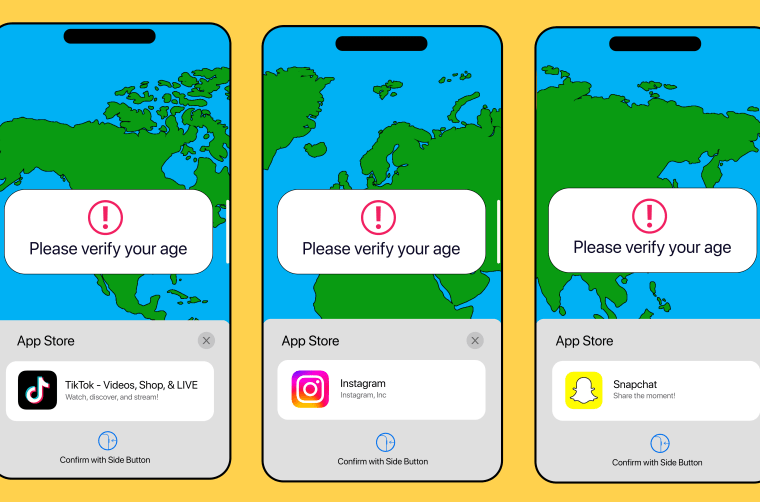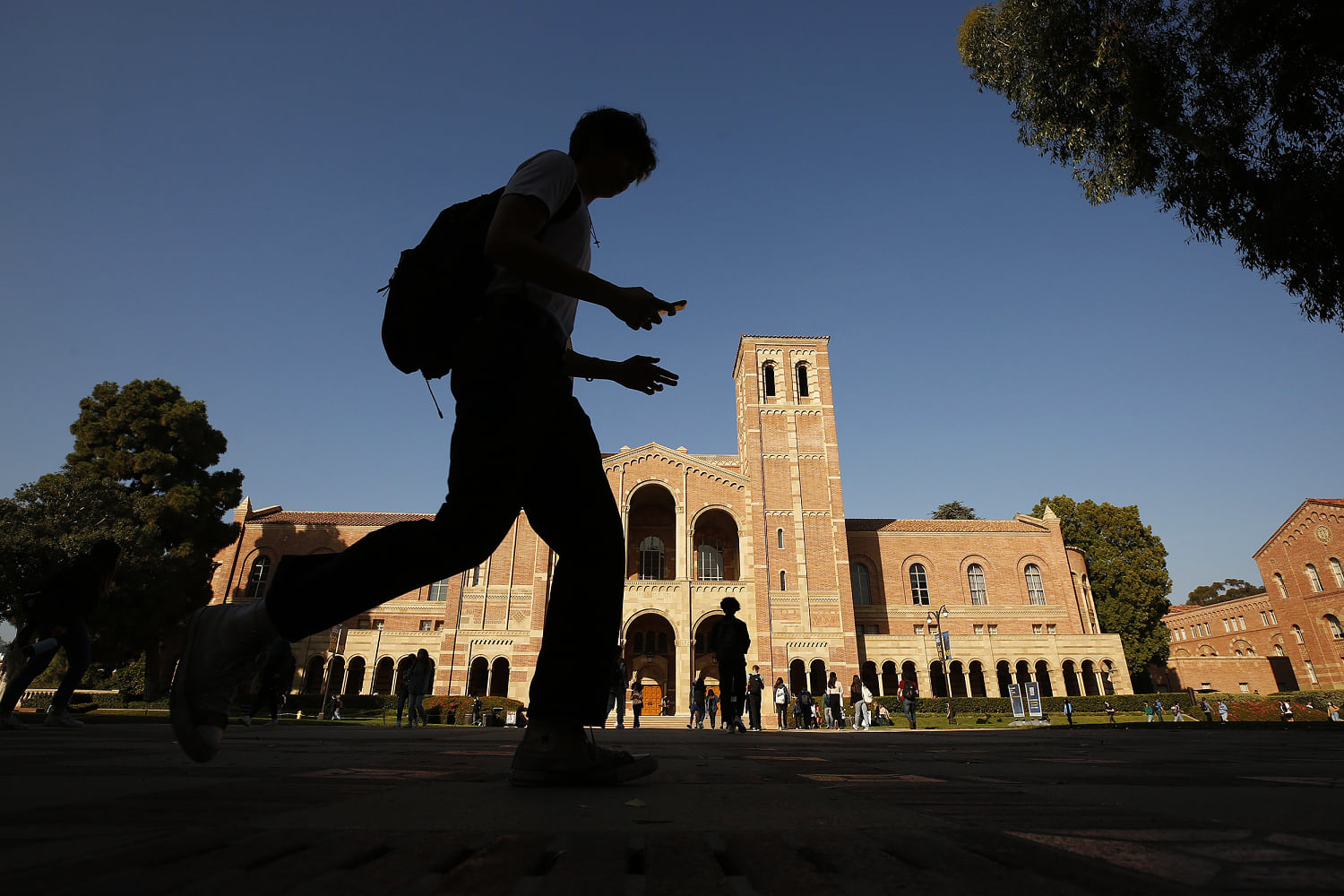Trump reaches tariff deal with South Korea and Witkoff addresses Gaza crisis: Morning Rundown

Donald Trump has announced tariff rates for several countries as his Friday negotiation deadline nears. Pressure to address the humanitarian crisis in Gaza builds. And why some states are passing laws requiring app stores to ask for a user’s age.
Here’s what to know today.
Trump announces tariff deals as deadline approaches
President Donald Trump has announced last-minute trade agreements with South Korea and Pakistan, just a day before his Aug. 1 tariff deadline.
The president said South Korean imports would face a 15% tariff after the country made “an offer to buy down” the 25% duty level he had previously set.
Trump said South Korea would give $350 billion “for investments owned and controlled by the United States,” and $100 billion of liquefied natural gas “or other energy products.” South Korean President Lee Jae-myung confirmed the agreement yesterday evening.
This is Morning Rundown, a weekday newsletter to start your day. Sign up here to get it in your inbox.
This morning, the United States and Pakistan said they had clinched a deal that Islamabad described as leading to lower tariffs on its exports, while Trump trumpeted a pact to help develop the South Asian nation’s oil reserves. Neither mentioned the tariff rate agreed.
The president yesterday said imports from India face a hiked tariff rate of 25%, along with an unspecified penalty for what he said was an over-reliance on Russian energy and military equipment.
U.S. tariffs on goods from Brazil will be raised from 50% to 90%, Trump said, as his administration sanctioned the judge overseeing the cases for former President Jair Bolsonaro for allegedly plotting a coup.
Tomorrow marks a trade negotiation deadline that Trump said “stands strong” and “will not be extended,” months after he initially threatened tariffs on April 2, a day he deemed “Liberation Day.”
As tariff rates are paid by those importing goods to the U.S., higher tariffs make it nearly certain that American households will pay higher prices for the everyday goods that are made overseas. American consumers face an effective tariff rate of 18.2%, the highest since 1934, translating to a loss of as much as $2,400 per household in 2025, according to the Yale University Budget Lab.
Trump’s tariff plan is headed to court today, where a panel of 11 judges in New York will hear arguments from the administration, as well as two small businesses that say many of his import duties are illegal. The businesses argue that Trump’s use of the International Emergency Economic Powers Act of 1977 was illegal and that he has “no authority to issue across-the-board worldwide tariffs without congressional approval.” All of Trump’s tariffs on major trading partners, including Canada, Mexico, and several other countries, have been deployed using the law.
Meanwhile, the Federal Reserve left its key interest rate unchanged, though two Trump-appointed board officials dissented from the decision, which has not occurred in more than three decades. Fed Chair Jerome Powell said that while the economy remains solid, it’s too early to tell how tariffs will affect it.
More politics news:
- Former Vice President Kamala Harris will not run for California governor, ending months of speculation.
- The family of Virginia Giuffre, a survivor of Jeffrey Epstein’s sexual abuse who has since died, urged Trump not to consider clemency of the financier’s co-conspirator, Ghislaine Maxwell.
- Texas Republicans released a proposed congressional map that would give Republicans a path to gaining five seats in next year’s midterm elections.
- Federal authorities arrested an Ohio man in connection with a 90-second, expletive-laden voicemail threatening to kill Rep. Jim Jordan over potential cuts to Medicaid.
Hunger in Gaza reaches ‘tipping point’
Experts and advocates say the hunger crisis in Gaza has reached a “tipping point,” with deaths expected to soar if Palestinians do not get urgent relief. And the children who do survive malnutrition will face lifelong consequences.
The “window to prevent mass death is rapidly closing, and for many it’s already too late,” said Kiryn Lanning, senior director of emergencies of the International Rescue Committee (IRC), a U.K.-based humanitarian organization. The World Health Organization warned that the “health and well-being of an entire future generation” was at stake.
Doctors and aid workers inside Gaza, themselves overworked and underfed, have been warning for months about the critical lack of food and the spiraling cost of the little that was available due to Israel’s offensive and crippling aid restrictions. They say that their worst fears are coming to pass.
Trump’s special envoy, Steve Witkoff, will travel to Israel today to address the humanitarian crisis in Gaza, a senior official said, as some of the president’s Republican allies and many Democrats call on him to expand food assistance to the enclave and put more pressure on the Israeli government to reach a ceasefire deal. Witkoff pulled his negotiating team from Doha, Qatar, last week after he said the latest response from Hamas showed “a lack of desire to reach a ceasefire.”
Witkoff’s trip to the Middle East comes a day after Canada said it plans to recognize a Palestinian state in September, joining the U.K. and France in making a symbolic announcement signaling a broader shift against Israel’s policies. “The level of human suffering in Gaza is intolerable,” Canadian Prime Minister Mark Caney said.
Trump has been more outspoken this week about the crisis in Gaza. Since Israel announced a “tactical pause” in military operations in Gaza last weekend, more than 320 trucks of aid have been collected and distributed by the U.N. and other international organizations, and at least 260 trucks were in Gaza, according to the Israeli military. Read the full story here.
How a Harvard initiative studying the Israeli-Palestinian conflict collapsed

The Harvard Divinity School’s Religion and Public Life program was launched five years ago with the goal of advancing the “public understanding of religion in service of a just world at peace.” The program ran annual trips to Israel and the occupied West Bank, a reason several students said they joined the school.
But the trip and a related course on the Israeli-Palestinian conflict were put on pause in March amid what the school described as “substantial adjustments” to Religion and Public Life. All three of the program’s leaders and most of its staff have left or not had their contracts renewed amid internal and external allegations of antisemitism against the program. Religion and Public Life will continue to operate under new leadership this fall, but with vast changes.
The program’s gutting comes at a critical time, when Harvard has been accused by the Trump administration of failing to root out antisemitism and threatened with a loss of federal funding. However, public scrutiny predates the current presidential term.
Former faculty of the program, speaking publicly for the first time, shed light on how it fell apart — and what it could portend for the future of free speech on campuses. Read the full story here.
Read All About It
- A suspect was arrested in the killing of an Arkansas couple during a hike with their two young daughters at Devil’s Den State Park.
- Twenty-five people were taken to hospitals after a Delta flight headed from Utah to Amsterdam experienced “significant turbulence” and had to land in Minneapolis.
- The gunman who killed four people at a New York City office building purchased an AR-15-style rifle used in the attack from a former co-worker for $1,400, sources said. Meanwhile, former classmates and a coach said the suspect was once a “disciplined” athlete.
- A man poured gasoline on a Virginia city councilmember and set him on fire in an attack that police said “stems from a personal matter.”
- A type of HPV regularly found on the skin was newly identified as a cause of skin cancer, according to a new report.
Staff Pick: Why Apple or Google may soon ask your age

Kids’ safety online has gotten a lot of attention recently. There has been a congressional debate over legislation, state laws about social media age limits and a Supreme Court ruling on age checks for pornographic websites. But in speaking with sources, I heard about an under-the-radar trend: the idea of putting app stores on the hook for verifying people’s ages.
Three states have passed laws that, starting next year, would require companies like Google and Apple to ask people’s ages when they create app store accounts. Singapore has done the same. The issue has split the tech industry into warring factions, and civil liberties advocates say these laws will put another nail in the coffin of a free internet. — David Ingram, tech reporter
NBC Select: Online Shopping, Simplified
Pickleball can be incredibly addicting and fun, but make sure you lace up with the proper footwear or else you could risk injury. These shoe options for men and women will keep your feet and ankles well protected. Plus, more than 600,000 Frigidaire mini fridges have been recalled — here’s what to know.
Sign up to The Selection newsletter for hands-on product reviews, expert shopping tips and a look at the best deals and sales each week.
Thanks for reading today’s Morning Rundown. Today’s newsletter was curated for you by Elizabeth Robinson. If you’re a fan, please send a link to your family and friends. They can sign up here.





